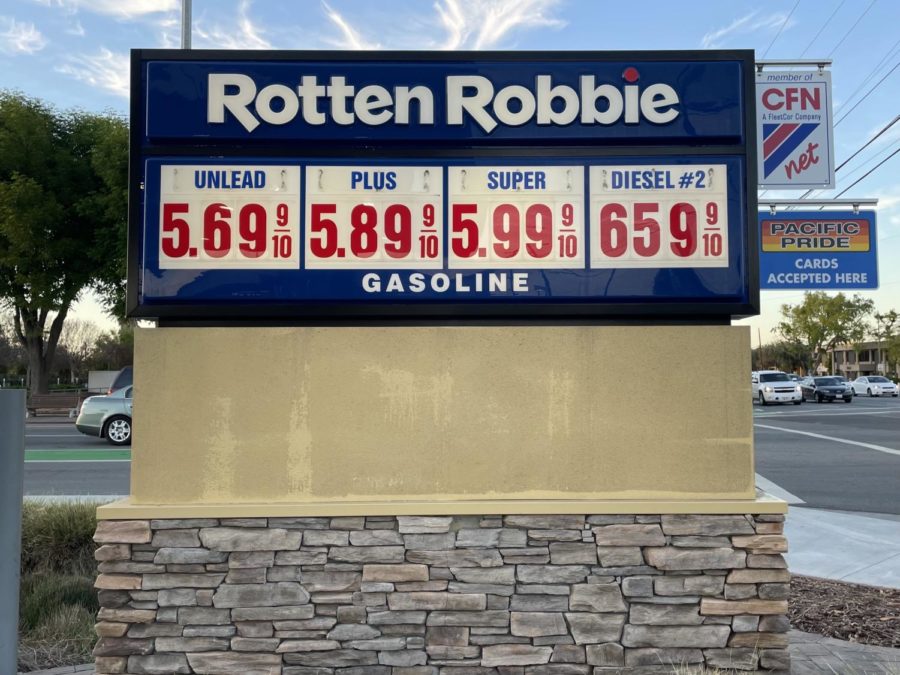The war between Russia and Ukraine poses threats to the environment in both the war zones and in countries with economic ties to Russia as nations scramble to compensate for the lack of Russian materials.
The U.N. continues to warn countries of the impacts of their actions in a time when they suggest that these nations focus on cutting back their usage of fossil fuels. U.N. Secretary-General Antonio Guterres described the utilization of fossil fuels as “mutually assured destruction” at the Sustainability Summit on March 21, since the daily lives of over 3.3 billion people are at risk due to climate change. Green Team Public Relations Head Sriram Bhimaraju (10) also notes the effect on climate change due to weapons manufacturing and usage.
“The mobilization of an army the size of the Russian army takes a whole lot of resources,” Sriram said. “The carbon footprint just in the transportation of resources, and also people to Ukraine, is going to be very large. We also unfortunately have weapons being used that produce smoke, so everything is going to be really bad for the environment.”
Historically, about 80% of the world’s armed conflicts’ battlegrounds landed on biodiversity hotspots, or regions with particularly high amounts of wildlife diversity, in the period from 1950 to 2000. The Ukraine-Russia conflict has deeply harmed southern Ukraine’s Black Sea Biosphere Reserve, home to over 120,000 birds and several endangered species in addition to now containing fires viewable from space due to the spike in military activity. The Russian military has already infiltrated over one-third of Ukraine’s protected natural areas, damaging ecosystems and harming species.
“So many natural resources have been lost,” Research Club Secretary Ella Lan (10) said. “There’s been numerous of these [damaging effects] and people have been focusing on how we can recover from this fire rather than how we can ensure that these fires don’t happen in the first place –– it’s just a change of mentality and change of mindset.”
In addition to water contamination and the harm to the marine world, countries in Europe are rushing to make up for the halted imports of Russian materials such as gas and oil. The U.S. House and Senate stopped these imports in addition to seafood, alcohol and diamonds on April 7 to weaken the Russian economy. The interconnectedness of the world trade system means that any type of conflict or even threat of war can result in significant disruptions in the international economy and especially in the delicate oil industry.
One of Russia’s chief exports, gas, is causing prices across the country to skyrocket. Last year, the U.S. purchased 245 million barrels of Russian oil and 40% of Europe’s gas comes from Russia. In the U.S., gas prices are at an all-time high with the country’s current average at $4.12 per gallon and California at $5.689 with a price peak on March 29 at $5.919. In addition to gasoline, shortages of other petroleum-based products, including plastic, may ensue because of the conflict between Russia and Ukraine.
“We are so dependent upon oil as a natural resource to fuel not just the manufacturing of goods but also the transportation of goods from factory to market,” upper school world history teacher Mark Janda said. “Many of our goods are dependent upon oil and oil byproducts. So when a country that is an agricultural and natural resource powerhouse is invaded by another country, it’s gonna throw oil industries into a tailspin.”
Historical international conflicts have also led to extreme oil crises. For example, in the 1990s, the Iraqi invasion of Kuwait and conflict in the Middle East led to a 33% increase in oil prices for the U.S. Immediately following the attacks of Sept. 11, 2001, oil prices spiked again.
As consumers across the country and world bear the weight of an urgent oil crisis, stock values of clean energy companies and organizations have risen significantly over the past few weeks. Since oil production and importation can slow to dangerously low levels, as shown by the current Ukraine and Russia conflict, people have begun searching for solutions to this reliance on oil products.
“Our dependency on oil is really problematic for long-term peace and safety of people all over the world,” Janda said. “We’ve got to find a way to wean ourselves off of that for the good of everybody, including the climactic issues but also the economic and political issues at play.”
This story was originally published on Harker Aquila on April 25, 2022.




































